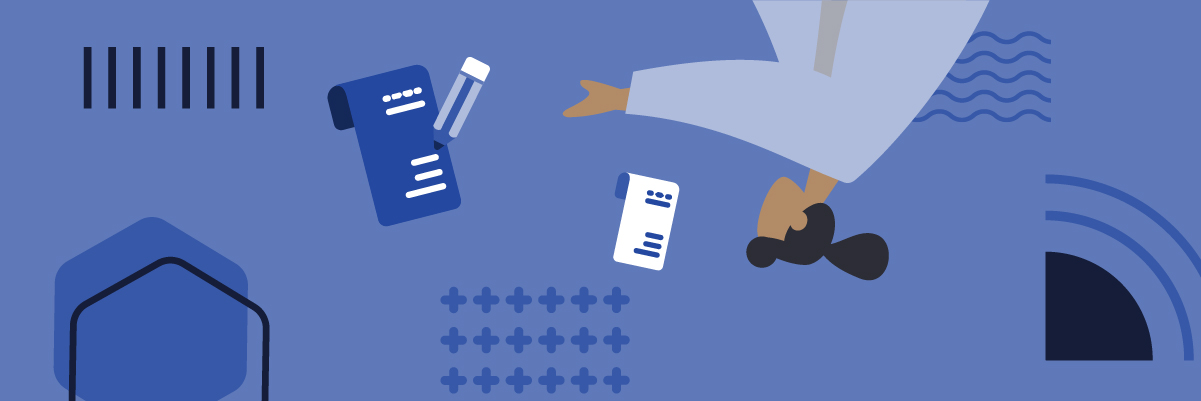In this day and age, everyone wants to have a go at remote work. But, we’re not just undergoing a revolution in how we work, but also in the type of work we do. Being a writer was this hoity-toity, ivory tower profession back in the day — Tolstoy, Sallinger, the great academicians. Now, it’s within the grasp of us, the hoi polloi, as long as we can deliver quality material. Today, I’m going to teach you how to become a freelance writer, make some moolah, and keep your hair from going totally gray in the process.
And yes, before you start, freelance writing can be a rewarding, lucrative profession. There’s no one-size-fits-all approach to it, and you can have as much variety and creativity — or lack thereof — as you find comfortable; there’s no “freelance writer” lifestyle, salary, or career path that’s the same for everybody. Maybe you’re one of those go-getting workaholics who likes burning the candle at both ends. Or, perhaps you’re like me and like a work-life balance that falls more on the side of the latter.
Regardless of your preferences, the freelance world can accommodate all sorts of approaches. But, here’s what I guarantee you can get out of this guide:
- The reasons. Learning how to become a freelance writer is not for everyone. Do you have the drive, desire, discipline to be self-motivated?
- Skills you’ll need.
- Types of freelance writing.
- The boom-and-bust cycle of freelancing, and how to make it as painless as possible.
- Where to get constant, good-quality, high-paying work that’s not pure drudgery.
Moreover, I’ll be able to speak from experience on all of these subjects, as I’m a freelance writer myself.
It Always Starts With Why
in “Freelance Writer for Hire,” our very own James young writes:
What is a freelance writer? To put it simply, a freelance writer is just like any writer, but they work on a self-employed basis. A freelance writer for hire is essentially an independent business owner.
Does this sound like you? Do you have a self-guided, independent mindset that just can’t be bound by the regular 9-5 workflow? Sure, the COVID-19 pandemic turned many into virtual experts in remote work. Working in sandals and a nightgown, coffee cup in hand, was less of a pipe dream and more an everyday reality in 2020. But, as it turns out, the work-from-home revolution is as much a dream to some as a nightmare to the office-loving crowd.
Even more so, learning how to become a freelance writer essentially entails turning into your own promoter. Scoring gigs and keeping that all-important cash flow alive are day-to-day concerns that just don’t exist with a regular job. Some days, you’ll be on top of the world, catching a wave in Santa Cruz after nailing that day’s work; others, you may find yourself struggling to find good clients, or having a hard time balancing your checkbook.
So, learning how to become a freelance writer is about much more than faint dreams of independence. Sure, it means taking the reins of your life and setting your own goals, your own times, and live life on your own terms. But it also means coming to terms with uncertainty, creating your own bubble of discipline, and coming to grips with hard-hitting realities that just don’t cross the minds of most people.
If you are compatible with it, though, freelance writing can be the best thing ever. It was for me.

How to Become a Freelance Writer – The Good
In the previously quoted article, James shares some benefits of the freelance lifestyle:
- Choosing your working hours, allowing you to leave the 9-to-5 world behind
- Deciding how many hours to write a day or week
- Choosing who to work for, what to write about, and how much to write
- Never having to deal with traffic or commuting since you can work at home
- Creating your ideal workspace and environment, unlike a traditional office
- Taking days off or holidays without the hassles usually encountered when working for a company
And yes, these things are definitely not too good to be true, although they may sound as if they were. If the mind-numbing repetition of office work, hierarchies, and middle-management purgatories are just too much to bear, and you feel like a character in the movie Office Space, you’re definitely in the right article. If I had to define the best aspects about learning how to become a freelance writer, I’d do it in one word:
Freedom.
To — as was pointed out above — work as much or as little as you want, where you want, at the time of day you want. Sure, it’s not a fairytale, and it takes resourcefulness, commitment, and discipline. But when it’s on, it’s on. I’ve worked from island paradises and glacier lake retreats, as well as cities of all kinds. And I’ve had the liberty to close my laptop and just take it all in whenever I wanted. That, to me, is the type of joy that is more about opportunity than money.
And yes, there are always trade-offs, as with most things in life. You won’t have the same job security or benefits, for one. You may be great, and experience incredible strokes of luck, as well as be above-average in ways that net you recognition and better jobs. But I wouldn’t count on it happening early on unless you’ve accrued some seriously good karma in a past life. It takes time and effort to build a business. Freelance writing is no different, only the business is you. You can read that in Yoda’s voice, it’s OK.
Some of the Gigs You Can Land
As I said, there’s no one perfect writing gig out there. What you’ll be chasing will vary depending on your skills, whether those from your previous professional experience, your hobbies, or those you pick up along the way.
Here are some examples of the many types of reading gigs you can find out there:
- Website content — every blurb, every item description, every line on every site has an author.
- Press releases — not the height of creativity, sure. But trust me, every business owner needs clear, concise communicators.
- White papers — professional articles for professionals, with the intent of generating leads.
- Essays — educational content, which can range from anything to writing post-doc philosophy papers to material for first-graders. It’ll depend on how much knowledge you have (and how much you are willing to acquire)
- Creative writing — think creativity is dead? Not by a longshot! Prove the cynics wrong and make it on your own terms!
- Blog articles — such as this one, which are informational posts about wide-ranging subjects.
- Magazine articles — general interest or super-niche articles for web or print publications. Remember when Rolling Stone was a thing? Me neither.
- eBooks — people are reading digitally more than on print, and that’s here to stay. You can help generate more, exciting content.
- Ghostwriting — some people are great with ideas, but not so much with execution. Maybe they just need you to make their dream publication a reality, to shape the clay of their thought into something tangible.
- Proofreading — you can always revise and improve on other people’s work.
There’s way more you can try your hand at, but I don’t intend to disorient or bore you here. The idea is to give you an idea of the incredible breadth of work you can cover when you learn how to be a freelance writer.
A Particular Set of Skills
So, what does it take to learn how to be a freelance writer? Is this going to be another bullet point extravaganza? Let’s not. But, you’ll definitely need above-average grammar, reading comprehension skills, and an ability to condense complicated concepts into smaller, more discrete packages. They say great readers make great writers, but that’s about half of it. To get really good at writing, you’ll need to practice, practice, practice.
Furthermore, you’ll need to master the art of the flow. You’ll have to be a rigorous critic and self-analyst, and learn to know which parts of your writing work, and which you need to work on. Freelance writing is not for the weak of will, because the struggle to improve and refine your technique is never over. Language is like a multifaceted diamond; it may be beautiful, but it requires polish and applied effort.
And that’s not even touching the subject of knowledge. If you’re one of those people with a sponge brain that just absorbs information, you’ll love writing. It’ll often require you to touch on new, exciting subjects, and the ability to make them clear for a new audience is incredibly valuable. Even more so, if you’ve got experience in other professions, like the legal, medical, or financial fields, you can try to work in those niches.
Writing is the kind of thing that benefits not just from your technique, but your lived-in experience and skills as well. And yes, I did lift the title of this header from the movie Taken. Go on, sic Liam Neeson on me.

How To Become a Freelance Writer and Still Eat — Where
No, not where to eat! It’s up to you to rave about the great dining spots in your city. Where does a freelancer find work these days? Easy! That might actually be the easiest part of this whole article, really. Freelancing platforms abound these days, and there’s even an overabundance of work available for the enterprising freelance writer.
Most of these, like Fiverr, Upwork, or Freelancer, are pretty good for a start. In fact, the last two have a pretty high rate of high-paying, professional jobs. It might not be great to apply for these if you’re a beginner, but if you’ve already got experience under your belt, you can give ’em a go.
This is where the “relentless self-promotion part” comes in. You see, in order to get gigs, you have to create your profile, attract clients, and apply for jobs, win gigs, as it were. Sure, it may all sound a little gladiatorial, but it all boils down to convincing the prospective customer that you’ve got the goods. And hey, a small recommendation? If you do have the goods, always, always charge what you’re worth.
At first, you may be tempted to trudge through water, but it’s not worth it. Don’t get a million low-rent jobs just to pay the bills unless you’re a total newbie. You’ll burn yourself out and take the passion out of a beautiful profession. If you’ve already earned yourself a decent number of good reviews, start applying for jobs that ask for intermediate writers and over.
Or…
Do you want me to really solve it for ya? You could do something as easy as apply for a job at Bunny Studio. Our only requirement is that you need to be a pretty great, tried-and-true writer already. But, if you pass our test (less than 2% make it, but you can reapply), you’ll have plenty of excellent work coming your way, and that’ll definitely help keep the feast-and-famine demons of freelancing at bay.
Want to learn how to become a freelance writer? It’s worth it. Think you already have what it takes to put your big-girl shoes on? Drop us a line or twenty, wow us off our feet, and we’ll make sure you’ve got plenty of solid work coming your way. We don’t mind whether you’re at home, in a co-working space, or hanging out at the beach. Ain’t that the life?










